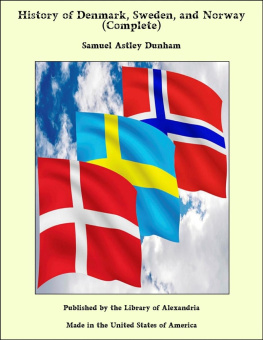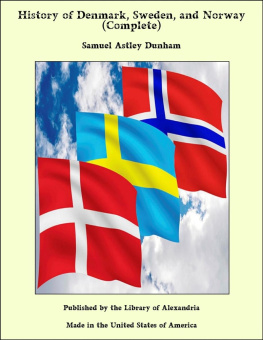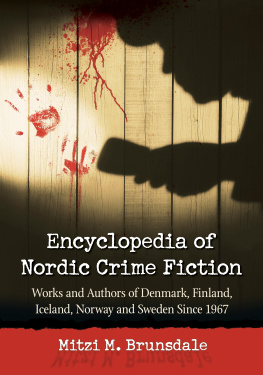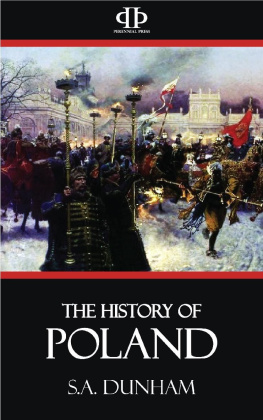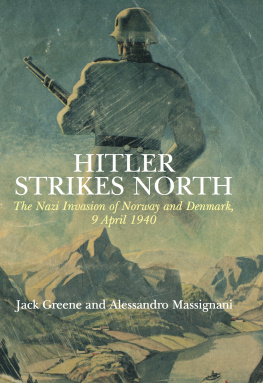INTRODUCTION.
Table of Contents
UNCERTAINTY ATTENDING THE EARLY HISTORY OF ALL NATIONS.MONSTROUS HYPOTHESES RESPECTING THAT OF NORTHERN EUROPE.FABULOUS, OR AT LEAST DOUBTFUL, KINGS OF SWEDEN, NORWAY, AND DENMARK.DISTINCTION OF RACES IN THE NORTH.THE ORIGINAL INHABITANTS, THE SWIONES, GOTTONES, DANKIONES, WERE PROBABLY THE SWEDES, GOTHS, AND DANES.THE JUTES AND LAPPS AND FINNS DIFFERENT FROM THE NEW COMERS.INFORMATION COLLECTED BY ALFRED RELATIVE TO THE NORTH.NUMEROUS CHIEFS WITH THE REGAL TITLE.KINGS OF DENMARK: DANHUMBLELOTHERSKIOLDGRAM, ETC.WONDERFUL ADVENTURE OF HADDING AND OF THE GIANTESS HARDGRIPE.FRODE I.ODIN.HIS ORIGIN ACCORDING TO SAXO.ACCORDING TO THE YNGLINGA SAGA.HIS SUPERNATURAL POWERS.REASONS ASSIGNED FOR HIS EXISTENCE.HODER AND BALDER.THE FATAL SISTERS.DEATH AND FUNERAL OF BALDER.JOURNEY TO THE SHADES BELOW IN QUEST OF HIS SOUL.HERMODS JOURNEY.ODINS.PROPHECY.RINDA AND ODIN.CHARACTER OF ODIN.RURIC.HAMLET PRINCE OF JUTLAND.HIS REAL OR FABULOUS ADVENTURES.FENGO.DANISH KINGS AFTER RURIC.
Inquiries into the origin of nations have never been productive of much good. Over that of all, with the single exception of the Jewsan exception which we owe to inspirationa cloud hangs, that no learning, no criticism can penetrate. It is easy to be speculativeit is easy to be ingeniousit is easy to make a considerable parade of learning by citing the opinions of various writers, and by attempting to show how little dependence is to be placed on any one of them; but, though the vanity of an author may be thus gratified, his labour must be useless. If he has not authority or legitimate inference for what he advances, he is worse than uselessly, he is perniciously employed: he is wasting his own time and that of his readers, and he is involving the subject, which he ought to elucidate, in greater confusion than it was before. Thus every age and every writer adds to the mass of fable, or at least of uncertainty, until the truth is for ever hidden beneath it.
These observations especially apply to northern history. Yet, dark and uncertain as this subject is, and monstrous as are the hypotheses which native ingenuity has framed respecting it, curiosity will be gratified with a mere glimpse at them. Thus, in regard to the Swedes , we shall find their origin wrapt in an obscurity deep as that which covers the cradle of most other people. Many are the fables which grave historians, listening only to tradition, or wresting to a certain purpose the words of some obscure writer, or confounding the actions of many people, or misled by a fancied analogy and similarity of names, have perpetuated on this subject. That sage authority, the archbishop of Upsal, has no doubt that Noah was king of the whole earth; that he settled in Scythia, which was inhabited a century before Italy; that his son Japhet, to whom Europe fell, spread his colonies still farther to the west; that Magog, the son of Japhet, was the first chief that colonised Sweden and Finland; that from Sweno, the son of Magog, sprung the Swedes, and from Gothar or Gog, another son, the Goths; that Thor, German, and Ubbo, brothers of Sweno, and his great vassals, were successful propagators of mankind; that Ubbo, who succeeded his brother Gothar, founded the city of Upsal, the most ancient metropolis of the north; that Siggo, successor of Ubbo, and the fifth king of the Goths, called Sigtuna into existence; that Eric, grandson of Gothar, and the sixth king of the Goths, began to reign about four hundred years after the universal deluge, and conferred great splendour on those northern regions; that, after his death, idolatry began in the north, the magnificent temple of Upsal being erected in honour of Thor, Odin, Frigga, and other divinities; that the Swiones or Swedes, and the Gothi or Goths, as being sprung from different roots, were frequently under different sceptres, though both regarding themselves as kindred, and for many generations living in harmony with each other; that, after the introduction of idolatry, this peaceful disposition began to be impaired, and in the course of a few reigns it wholly disappeared; that the Finns, Jutes, Gothones, Swiones, and other neighbouring people, became at length so numerous and so powerful, as to pillage the coasts of Sweden; that, to oppose them, no less than to procure the necessaries of life, which long-continued intestine wars had rendered very scarce, a large army was raised and a powerful fleet equipped, in about nine hundred years after the deluge; that the expedition, which extended along the southern no less than the northern shores of the Baltic, from Holstein to the confines of Lithuania, gave rise to a new kingdom; that at this period the empire of the Goths, comprising so many people beyond the bounds of Scandinavia, was one of the most powerful in the world, notwithstanding the fact that the conquered provinces on the European continent were subject to their own king (to him who had led the expedition from Sweden, and to his successors), while Sweden obeyed another king who had been left at home with the necessary authority; that the new empire, the seat of which was in Poland or Hungary, sent off its conquering swarms into Asia and Egypt; that, the regions of the Goths being too extensive for the government of one man, they at length elected rulers independent of one another, and thus broke this vast empire into numerous fragments; that the origin of the Hungarian dynasty, which was purely Gothic, added to the weakness of the race; that, while these events were passing in Europe and Asia, the Swedish monarchy subsisted, though weakened by the emigration of its chief warriors; that this diminution, alike of population and strength, emboldened the Danes, who had hitherto been tributary to the more northern kingdom, to assume the offensive, but being themselves assailed by the Saxons, and unable to resist that martial people, they eagerly submitted to the Swedes, and chose Dan, a Swedish prince, the son of Humel, or Humble, the sixteenth native king of the Goths, to rule over them; that this prince gave his name to the Danish kingdom, while his brother Angul, the first king of the English, left his name to that people; that Dan was succeeded by Lother his son, and Lother by Skioldwhile, in Sweden, Humble was followed by Gothilas and Sigtrug; that Gro, the daughter of Sigtrug, became the wife of Gram, son of Skiold, king of Denmark, but contrary to the wishes alike of her father Sigtrug and of the Swedes; that her abduction by Gram led to a war between the Danes and the Swedes, in which the latter were vanquished; that Scarin, the successor of Sigtrug, was slain in battle by Gram; that, on his death, Swibdager, king of Norway, was elected king of the Goths and the Swedes, who detested their conqueror and the whole Danish nationa detestation which was heartily returned; that, in revenge for the rape of Gro, a daughter of Gram was carried away into Norway; that Gram, arming to revenge the injury, was defeated and slain by Swibdager, who, however, had the generosity to place Guthrum, son of Gram, over the Danes; that they remained subject to the Swedes and Goths until Hadding rose against Asmund, the twenty-first king of the latter, and delivered his country from subjection. For these more recent events, for all subsequent to Skiold, the good archbishop has scarcely any other authority than Saxo, the Danish historian, whose facts, however, he does not scruple to alter whenever the honour of his country is concerned.[1]




